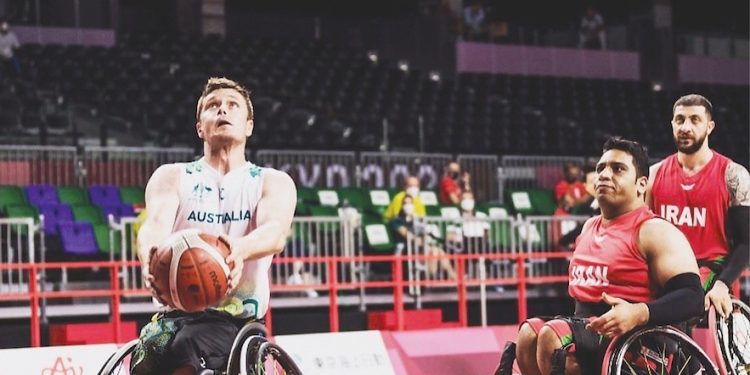Growing up in suburban Sydney, Australia, John McPhail would arrive to school eager to learn hard – and play hard. Resting on his lap most days was a football or a tennis ball or something, figuring his like-minded school chums would eagerly partake, which they did. Mostly he was game for any sport that would break out on school grounds during lunch.
“I never wanted to get to the point where I was sitting on the playground by myself,” McPhail says by phone the other day from the Pantego home he shares with his wife, Jillian. “It gave me an identity to say that, oh, I’m not just a kid in the wheelchair. I can do exactly what everyone else is doing.”
Oh, yeah, the wheelchair.
He was just shy of 11 months old when his spine was severed in a car accident. Surgeries followed, as did a life he nor his family ever expected him to have. But that’s what it was, and that’s all he knew, so sports, or anything else for that matter, wasn’t a matter of wondering could he or would he or what if.
Early on he was nudged toward sports like track and field but the thought of rolling around a circle wasn’t all that enticing.
In high school he participated in a program called the New South Wales Wheelchair Sports Road Show.
There he latched on to his athletic lifeline.
“I pretty much fell in love with basketball,” says McPhail, who knew he was fast but learned that he possessed the innate aptitude of a game-managing point guard. “It was the intensity of the game. You have people hitting chairs, falling off, not needing help to get back up.”
It resonated with the tough kid who grew up playing mainly able-bodied athletes who gave him no slack.
“I would just go out and play,” McPhail says. “Seeing people have the same aggressiveness and drive to win, to push hard. The first time I saw wheelchair basketball played at a competition level, yeah, it was like a fire that would never be extinguished. Right then I wanted to go as high as I could, do whatever I could, go wherever I could through basketball.”
He’s certainly done that.
In 2010, he helped the Australia men’s national team win a world championship. He came to the U.S. to play for Doug Garner’s Moving Mavs at UTA, where he captained the squad, earned All-American honors, a Bachelor’s degree – and, more importantly, met Jillian.
He played professionally in Germany and won a national title with the Dallas Wheelchair Mavericks.
Just last month McPhail was in Tokyo competing in the Paralympics where Australia netted big wins against Iran, Algeria, and Germany before being knocked out of the medal round by Japan.
At times in Tokyo, McPhail had to pinch himself. This real?
“Being a Paralympian is an experience of a lifetime,” he says. “It’s not something you can ever forget. I’m so thankful.”
Thankful for a sport that has taught him a plethora of lessons and afforded him some pretty cool life experiences. He knows that a lot of kids in wheelchairs or disabled kids in general lack the opportunity to play because they are not around a sport that caters to them.
“Without basketball I don’t know where I would be as a person with a disability,” says McPhail, who is eying the 2024 Paralympics in Paris. “It gave me a kind of bigger identity, a bigger purpose, a lot more confidence, a lot more freedom.”
He stops just short of saying the sport saved his life.
“But it’s pretty close, though,” he says, with a chuckle. “It’s not just playing basketball or being seen as equal. It’s a combination of all that.”
















